You want to do what’s best for your kid – to foster their future success in life and also to help them to be the best that they can be right now, while they’re still children. We all know that a key to life is to have balance and to be well rounded. In the pursuit of that, it’s easy to push kids into lots of activities that might, in reality, not be as helpful for them as we’d like to think.
Contents
Why Sports?
There’s no doubt that physical activity is great for kids, and according to Aspen Project Play, when children play sports, they’re more likely to be physically active as teens and as adults. Sports are great for mental and emotional development as well as physical fitness.
When guiding your kids to a sport, you don’t have to make all of the decisions: you’ve got the perfect partner right there in your child! Even with that great decision-maker by your side, you’re likely still going to find yourself in need of some help, so here are 6 ways to find out which sport is best for your child.

Source: Modusonline
1. Be Open
This is number one for a reason: it’s the most important. Throughout the process of choosing a sport with your child, you must stay open to lots of possibilities. This means both being open to a wide variety of sports while you’re choosing, and also being open to various paths within a given sport as well as being open to moving on when the time feels right.

Source: Dissolve
2. Play the Long Game
Talk to your child early on about what their goals are for participating in sports. If your child’s long game is to go to college on a track and field scholarship, then you’d better be sure that they’re running. Also, think about what supports are available to your child in your local area – is there room for them to grow within the sport, given the classes that are offered?
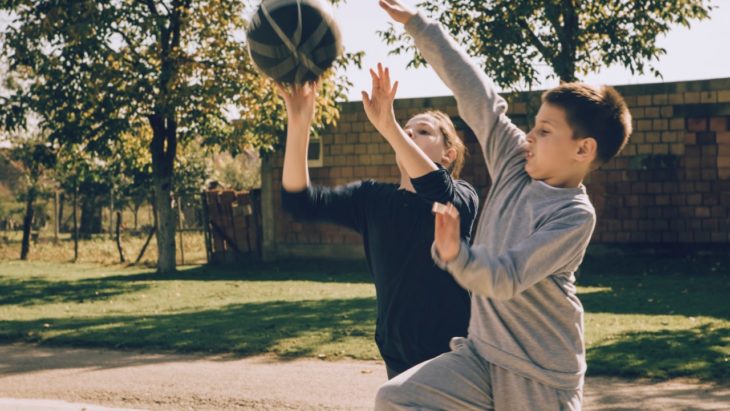
Source: Play the Long Game
3. Define Success
This doesn’t mean winning. Does success mean that your child makes it for a whole season of soccer? Maybe. Or maybe success is finding the courage to participate in a karate tournament, not necessarily coming home with a trophy. Success is about your child living up to their abilities, not about what some outside definition might be.
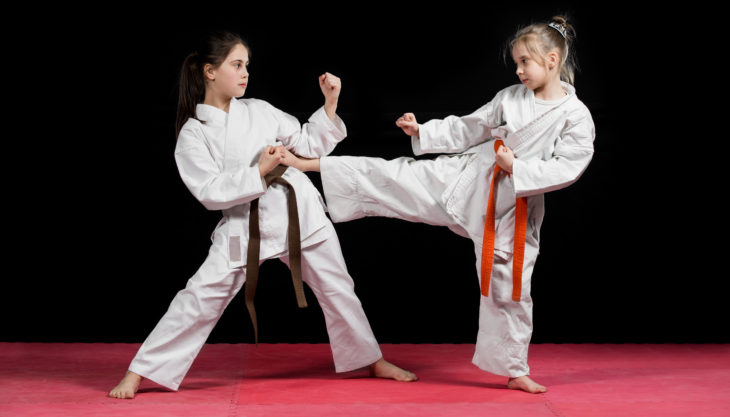
Source: CBS News
4. Consider Personality
What is your child’s personality? Do they get a lot out of being around other children, or are they more solitary? You might choose gymnastics for a child who likes to work individually, whereas baseball requires a hefty amount of working together with other players on the field. The big divide here is individual versus team sports.
Also, think here about the kind of culture that surrounds the sport that you’re looking at and whether it’s going to be a good match. Some sports are driven by a coach, who gives orders, while others allow kids to guide their own direction. Whatever you do, look for something that is going to be relevant to your child’s strengths.
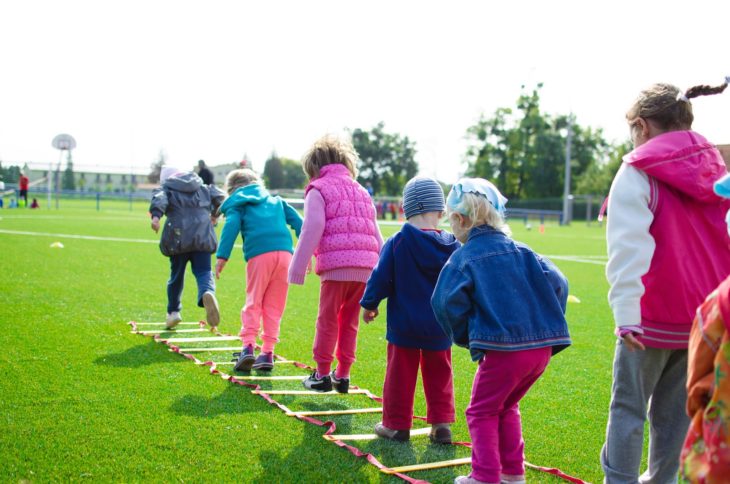
5. Gauge Interest Level
This one might sound like a no-brainer, but we’re going to emphasize it here in any case, because it is essential. Talk to your children about what interests they have, no matter how unusual or whether you’re interested in it. And don’t just sign them up as soon as you find a sport – get some free trial lessons, watch tons of videos on the internet, visit some live games and talk to other families who’ve been part of this sport to see whether the sport is really what you or your child imagine it to be.
The one thing that you have to be careful of is fostering age-appropriate sports. For instance, KidsATVSale.com points out that ATVing isn’t recommended for kids below age three, so this might be an interest that you need to guide towards another direction.

Source: Raising Children Network
6. Factor in Cost
We almost hate to say this one at all, but it is an important aspect to consider. Some sports are quite expensive, even for young children. Be sure that you know all of the costs that might come up in the future, as well as being well aware of the startup costs associated with a sport. Equipment, lessons, seminars, special events, etc. It is almost always the case that sports will cost you more than you think at first glance. That doesn’t mean that you say no, it just means that you don’t get hit with anything that you’re not ready for later.
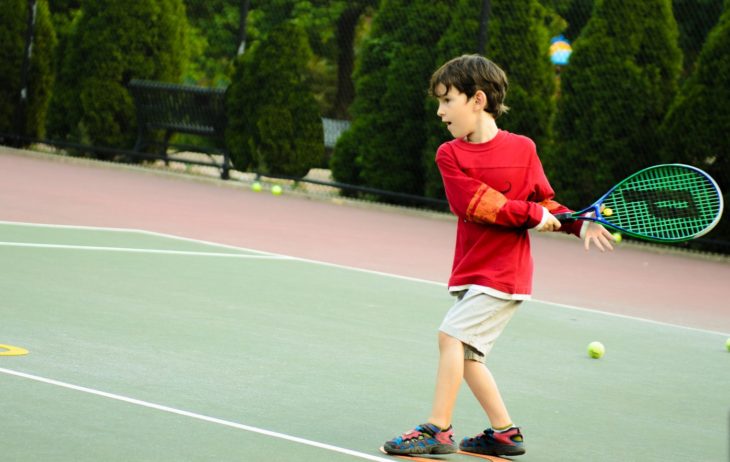
Source: HuffPost
Is It Good to Take Up Sports With Kids at Home?
If you want to train your kids on your own, you need to have to be well-qualified in that field. No wonder there is separated medicine for children from adults. Being a coach for your baby and training an adult are entirely different things. If you have a significant wealth of knowledge, you can try to train your child, but it’s better to provide him with a specialist. In the case of professional training with further developing skills, the assistance of a master is a must.
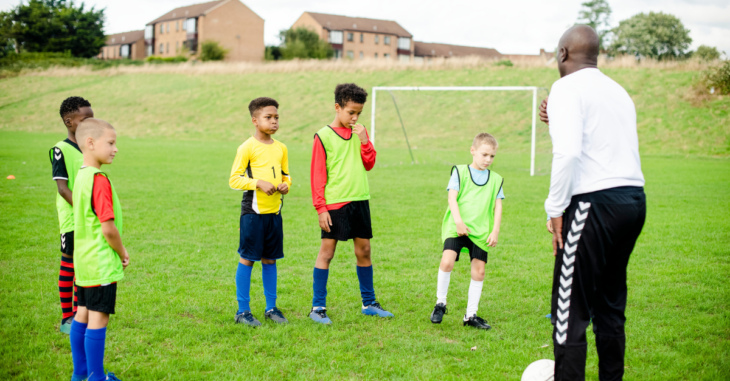
Source: Tifosi Sports
Remember the Journey
Sports are as much about losing as they are about winning. Your child doesn’t have to be the first place to get something out of the experience. They’ll often get more out of losing as it will teach them how to pick themselves up again and keep going after a loss. So by that same token, look for sports that encourage your child to grow through both winning and losing!

Source: Mommyish
Feel Good About Sports & Your Kid
Sports offer children the chance to learn and grow physically, emotionally, and mentally. They exercise the body and the mind, contributing to a well-rounded child who then grows into a well-rounded adult. Don’t be discouraged by the process of finding the right sport for your child, instead enjoy the process of finding the best fit.
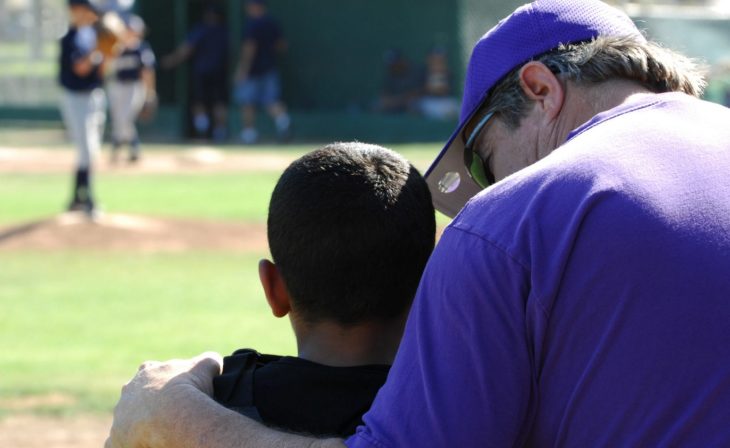
Source: MaxOne
